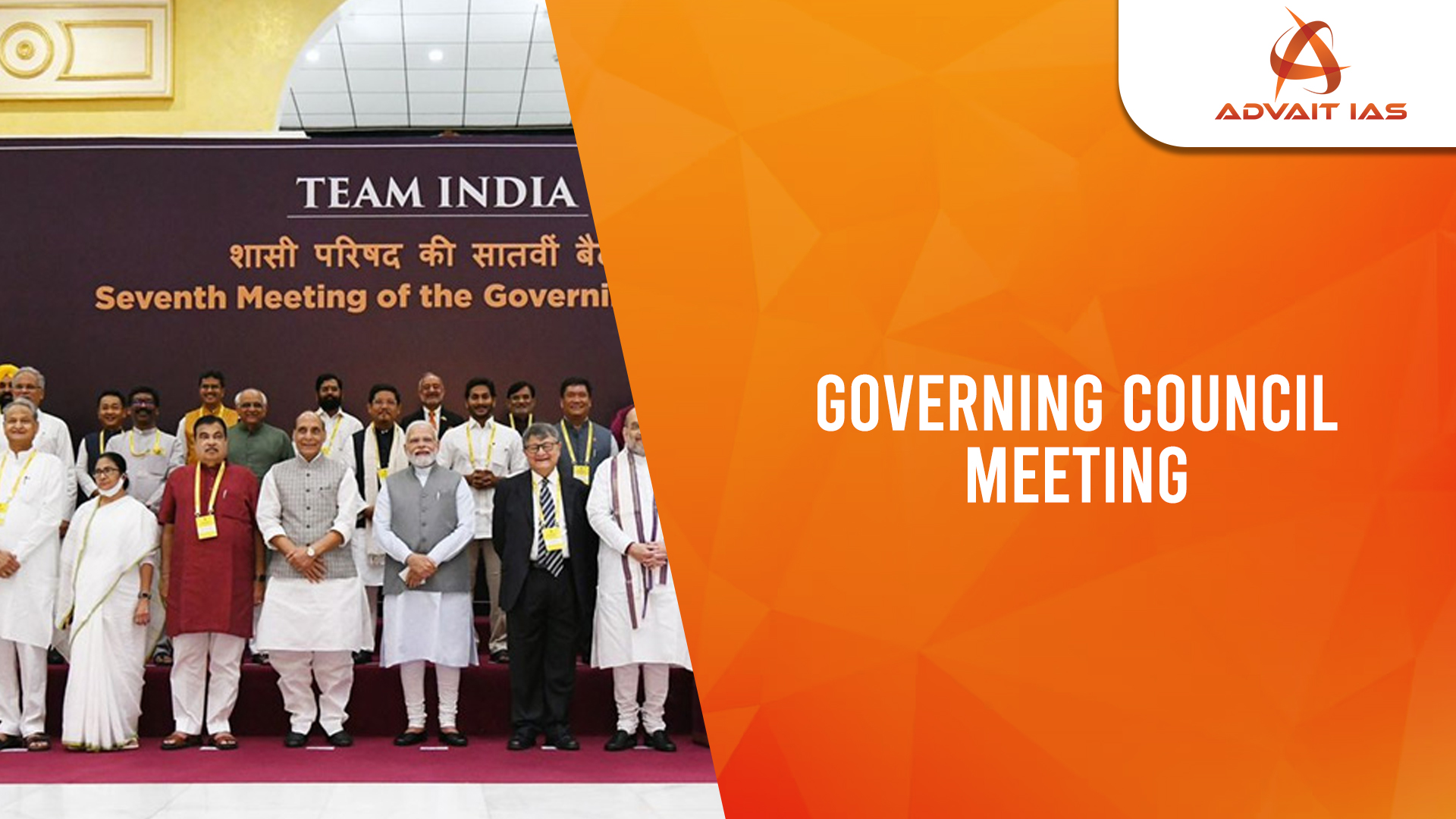The 10th Governing Council Meeting of NITI Aayog was held with the theme “Viksit Rajya for Viksit Bharat@2047”.
- The meeting emphasized Cooperative Federalism as a means to align state and national development goals.
Key Outcomes of the 10th NITI Aayog Meeting
- State-Specific Concerns Raised:
- Tamil Nadu: Demanded 50% share in central taxes (vs. current 33%) and a Clean Cauvery Mission.
- Punjab: Requested fair share of Yamuna waters and funds for border security and drug control.
- Trade & Investment Promotion:
- States urged to remove policy bottlenecks and obsolete laws.
- NITI Aayog tasked with drafting an Investment-Friendly Charter to attract global investors.
- Security and Strategic Concerns:
- PM emphasized modern civil defense systems and long-term security planning.
- Operation Sindoor, targeting terror infrastructure in Pakistan, gained unanimous state support.
- Economic and Industrial Development:
- Chhattisgarh: Proposed a 3T Model (Technology, Transparency, Transformation) to double GSDP in 5 years.
- Andhra Pradesh: Suggested forming sub-groups on GDP growth, population control, and AI-governance.
- Sustainable and Social Reforms:
- PM advocated for world-class tourism spots (1 per state) and green hydrogen investments.
- Emphasis on urban planning in Tier 2/3 cities, cybersecurity skilling, and increasing women’s workforce participation.
NITI Aayog’s Role in Cooperative Federalism
- Promotes Competitive Federalism:
- Through data-driven indexes (e.g., Fiscal Health Index, ADP, Composite Water Management Index).
- Strengthens Cooperative Federalism:
- Acts as a bridge between Centre and States via initiatives like Team India Hub and Aspirational Districts Programme.
- Advisory and Governance Support:
- Focus on policy guidance over financial allocation.
- Supports creation of State Institutions for Transformation (SITs).
- Regional & Inter-Sectoral Interventions:
- Runs initiatives like NITI Forum for North East, SATH-E, Poshan Abhiyan, and State Health Index.
- Promotes model-sharing across states (e.g., Gujarat’s industrial parks, Tamil Nadu’s skill programs).
- Digital Transformation Driver:
- Through Atal Innovation Mission, NDAP, Atal Tinkering Labs, and R&D hubs in Tier-2/3 cities.
Major Challenges in Advancing Cooperative Federalism
- Lack of Institutional Dialogue:
- Infrequent NITI Aayog and GST Council meetings weakens collaborative policymaking.
- Federal Undermining:
- Centre’s fiscal leverage misused (e.g., withholding SSA funds from Tamil Nadu).
- States have limited say in national schemes like PM-KISAN and Smart Cities.
- Unfair Tax Devolution:
- States demand increase from 41% to 50% share in central taxes.
- Rich states (e.g., TN, Maharashtra) contribute more but receive less; fiscal inequity persists.
- Inter-State Disparities:
- Western and southern states grow faster due to infrastructure, while eastern states lag.
- States like Chhattisgarh and Odisha rich in minerals but receive less support.
- River and Border Disputes:
- Ongoing issues like Cauvery (TN-Karnataka) and Yamuna (Punjab-Haryana) disputes hinder cooperation.
Measures to Strengthen Cooperative Federalism
- Institutional Reforms:
- Regularize meetings of NITI Aayog, GST Council, and revive Inter-State Council for smoother dispute resolution.
- Fair Fiscal Sharing:
- Consider raising tax devolution and implementing performance-based grants for lagging states.
- Inter-State Mentorship:
- Encourage state-to-state partnerships for industrial development, skills training, and reducing migration.
- Water Management Framework:
- Formulate National Water Policy 2.0 with enforceable river-sharing agreements and joint project funding.
- Unified Development Vision:
- Align national and state plans with Viksit Bharat@2047 using periodic monitoring and local flexibility.
The 10th NITI Aayog meeting reflects India’s intent to move from cooperative rhetoric to cooperative results. While central support, innovation, and policy coordination are improving, challenges in fiscal equity and federal dialogue remain. Realizing Viksit Bharat by 2047 requires genuine Centre-State collaboration, fair tax sharing, and localized governance reforms.






